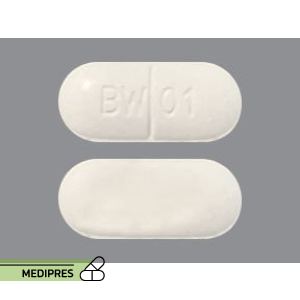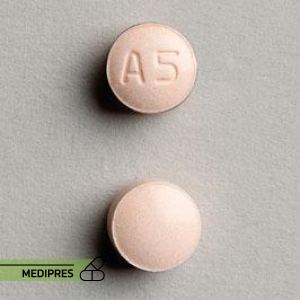
Magnesium oxide
23 June, 2023
Melatonin
23 June, 2023Mavyret
Category: M
Description
Generic name:
Glecaprevir/Pibrentasvir
Drug class:
NS3/4A protease inhibitor and NS5A inhibitor, direct-acting antiviral combination
Dosage form:
Oral film-coated tablets
Route of administration:
Oral
Dose:
- One tablet daily (300 mg glecaprevir/120 mg pibrentasvir) with food
- 8-week regimen for treatment-naive patients without cirrhosis
- 12-week regimen for treatment-experienced patients or those with compensated cirrhosis
- 16-week regimen for genotype 3 patients with prior treatment experience and compensated cirrhosis
Mechanism of action:
Glecaprevir inhibits the hepatitis C virus NS3/4A protease, preventing viral polyprotein processing; pibrentasvir inhibits the NS5A protein, blocking viral RNA replication and assembly.
Drug usage cases:
- Chronic hepatitis C virus infection, genotypes 1–6, treatment-naive, without cirrhosis
- Chronic HCV, genotypes 1–6, treatment-naive or experienced, with compensated cirrhosis
- Chronic HCV genotype 3, previously treated with sofosbuvir or NS5A inhibitors
- Chronic HCV infection in HIV-coinfected adults, genotypes 1–6, with or without compensated cirrhosis
- Pediatric patients aged 3 years and older with chronic HCV genotypes 1–6
Drug contra indications:
- Child-Pugh Class B or C hepatic impairment
- Hypersensitivity to glecaprevir, pibrentasvir, or any tablet component
- Coadministration with strong inducers of CYP3A (e.g., rifampin, carbamazepine, St. John’s Wort)
- Coadministration with atazanavir or lopinavir/ritonavir
Side effects:
- Headache
- Fatigue
- Nausea
- Diarrhea
- Pruritus
- Elevated bilirubin
- Insomnia
- Asthenia
- Neutropenia
Warnings:
- Risk of hepatitis B virus reactivation; screen all patients for HBV before starting therapy
- Not recommended for decompensated cirrhosis; may cause hepatic decompensation or failure
- Major drug–drug interactions; evaluate concomitant medications (e.g., certain anticonvulsants, antimycobacterials, HIV protease inhibitors)
- Monitor liver function tests prior to and during treatment
- Potential serious bradycardia when coadministered with certain calcium channel blockers or digoxin
- Advise effective contraception during treatment and for 7 months after last dose in females of childbearing potential
Use during pregnancy or breastfeeding:
Animal studies have shown no direct fetal harm, but human data are limited. Use only if potential benefits justify risks. Advise women of childbearing potential to use effective contraception during treatment and for at least 7 months after the last dose. It is unknown if glecaprevir or pibrentasvir is excreted in human milk; breastfeeding is not recommended during therapy and for 7 months after the last dose.



